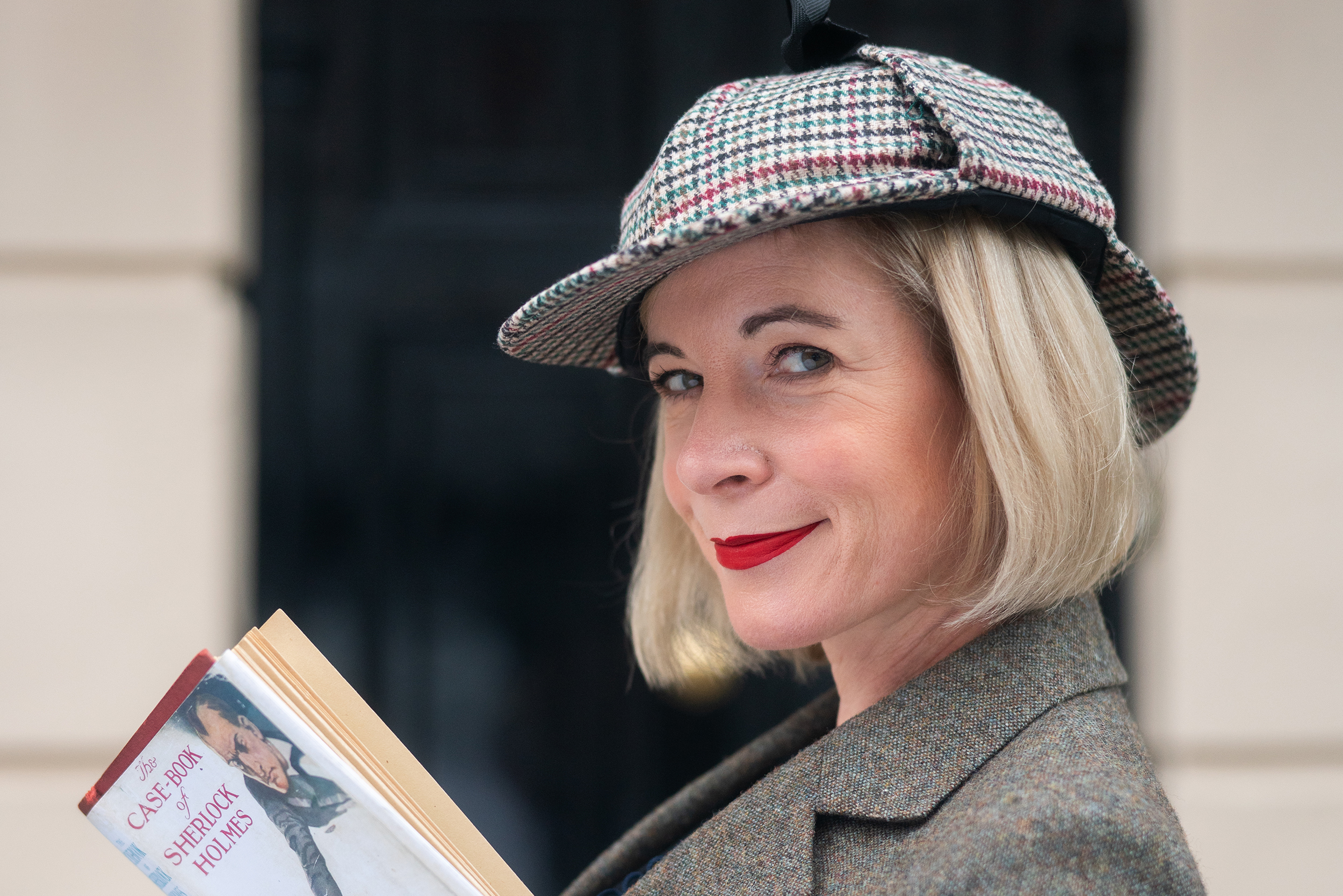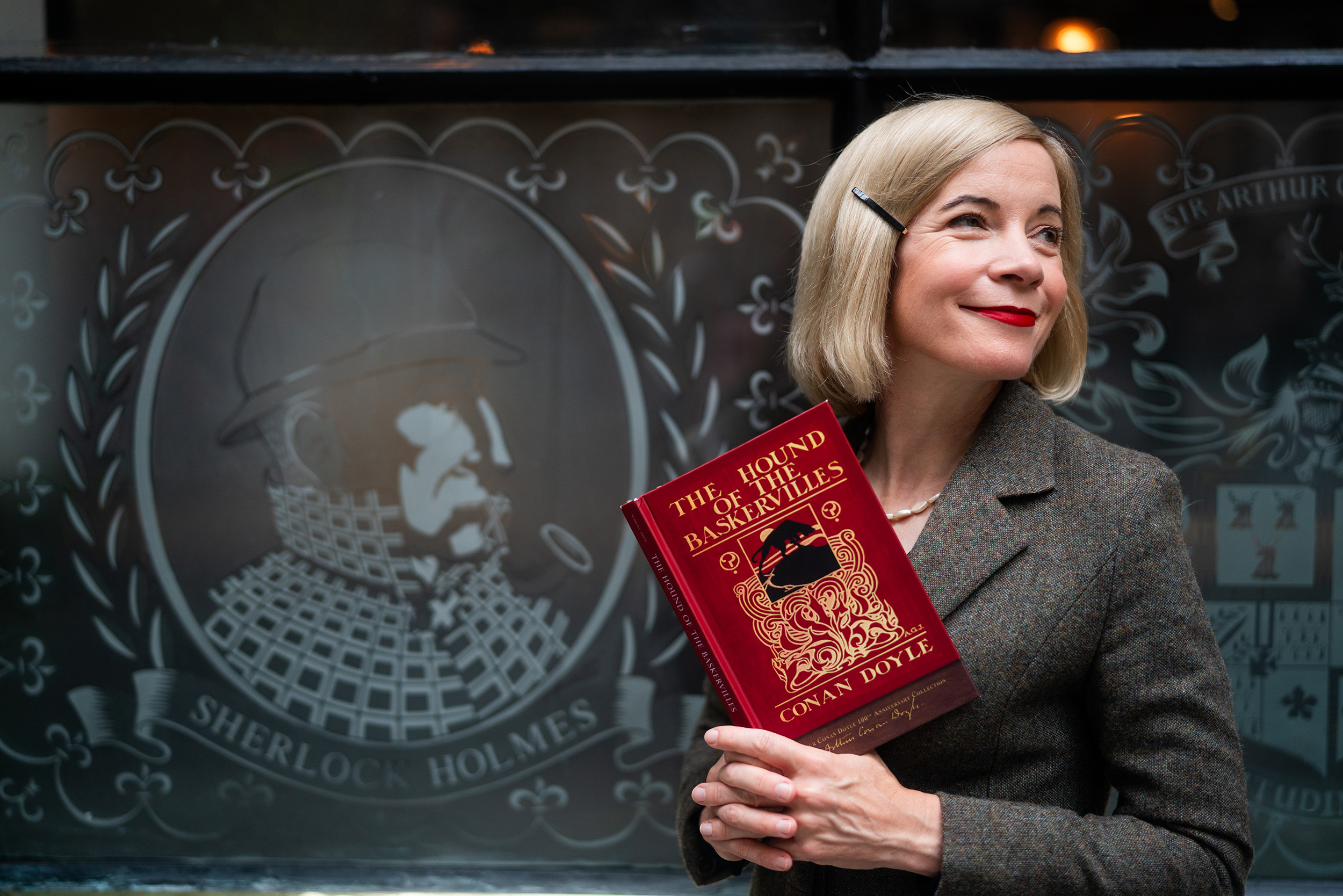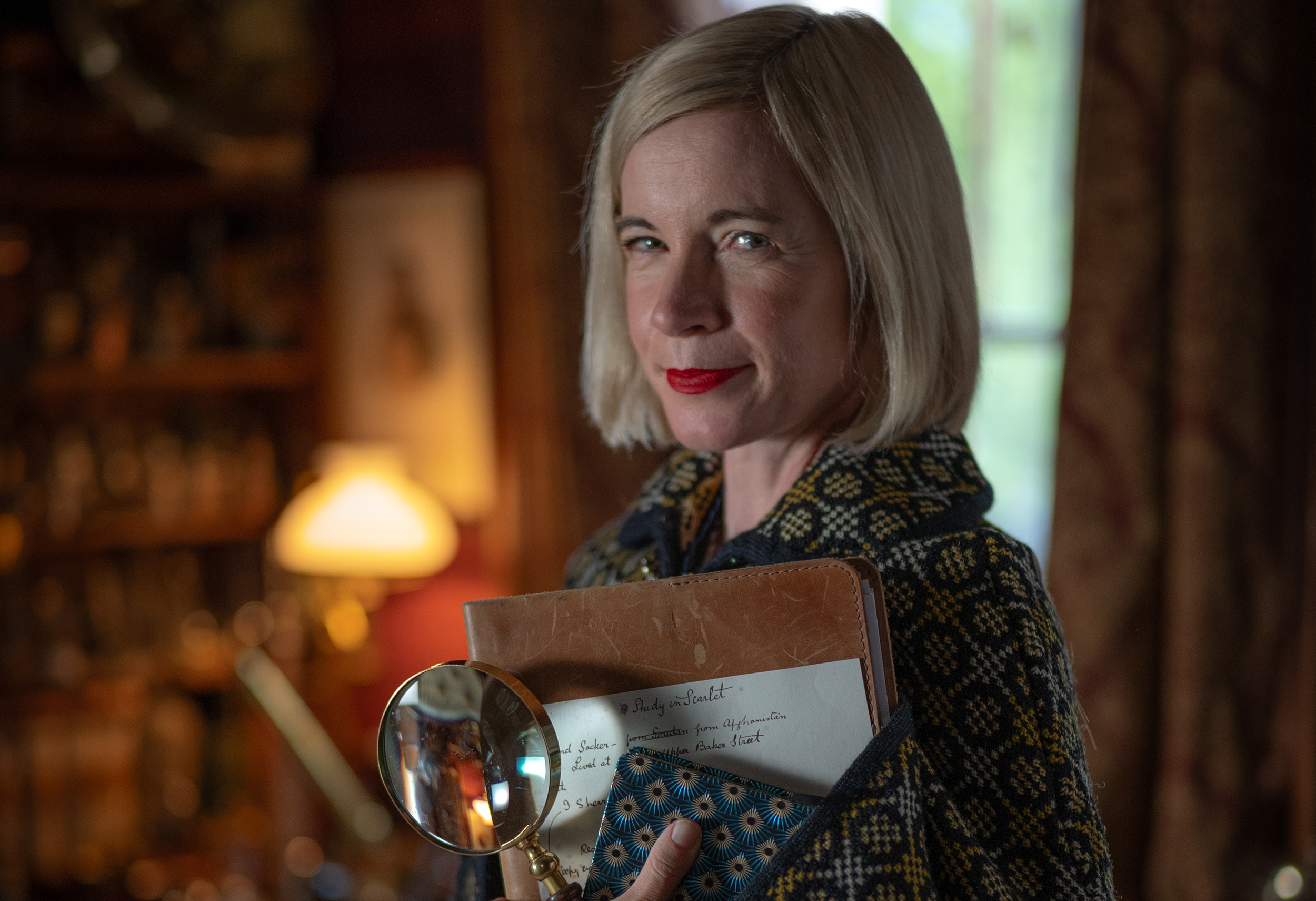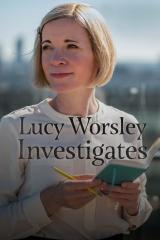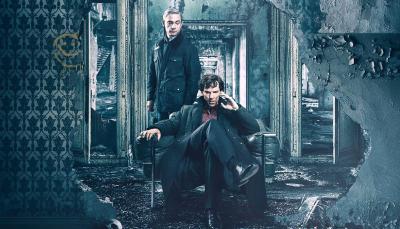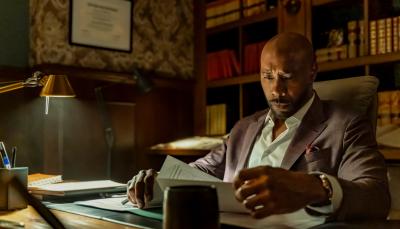Lucy Worsley on 'Holmes vs. Doyle's' Secret Agenda & What's Wrong with 'Lucy Worsley Investigates'

Lucy Worsley in Portsmouth Beach Shelter with book in hand in 'Holmes vs Doyle'
Lorian Reed-Drake © BBC Studios
From antiquity to the Blitz, monarchs to suffragists, presenter Lucy Worsley’s British history expertise knows no bounds. Though she began her career as a curator and inspector of historic buildings, her passion for making history accessible to the public landed her first documentary appearance in 2009’s Inside the Body of Henry VIII. Since then, she has brought history out of the archive and into millions of living rooms through programs on royal weddings, historical crimes, and so much more, garnering acclaim, especially for her 2018 documentary Suffragettes, about working-class women who demanded the right to vote.
In recent years, she has focused on some of England’s most beloved writers in series like Agatha Christie: Lucy Worsley on the Mystery Queen and Jane Austen: Behind Closed Doors. (Worsley herself is a writer and the author of numerous history books and historical fiction for children.) The latest writer under Worsley’s keen historical gaze is Sherlock Holmes author Arthur Conan Doyle, one half the focus of Worsley’s new series, Holmes vs. Doyle.
Over three episodes, the series investigates the fraught relationship between the celebrated author and his beloved (though not by him) character. It traverses Doyle’s life from the height of his literary success to the depths of his grief for his son’s death and his morbid fascination with war.
Telly Visions spoke with Worsley about the making of the series, what draws her to the character of Sherlock, and what excites her about being a historian.
The following interview has been edited and condensed for clarity.
Worsley struggled with how she would fit 71 years of Doyle’s multifaceted life, four Sherlock Holmes novels, and 56 short stories into one series until she came upon the idea of framing the series as a fight to the death between Doyle and Holmes. After creating the beloved detective, Doyle fought to step out of his shadow for the rest of his life. “Sherlock Holmes wins,” Worsley said, “because he’s still alive today. Everybody wants to know about him. He’s still on the TV the whole time. And Arthur Conan Doyle, not so much.”
Fortunately for Doyle, he is arguably the protagonist of Worsley’s story. Worsley and her crew spent a year bringing Doyle’s world to the screen through research, travel, conversations with experts, and Worsley’s signature narration. She’s sympathetic to the desperation that marked Doyle’s life to prove himself as a “serious” writer. Viewers of the series can make up their minds about whether he succeeded. However, the enduring popularity of Sherlock Holmes above his other stories (which even Worsley admits aren’t very good) speaks for itself.
So why was Doyle so ashamed of his bestselling detective? According to Worsley, the answer may lie in the legacy of Agatha Christie, a contemporary of Doyle and the subject of Worsley’s most recent series. “Artists – everybody – have this strange hierarchy about literary fiction and genre fiction, and I don’t like those values,” said Worsley. “Over the last few years, our values have shifted, and some people previously considered lowbrow are now allowed to be part of the canon of great writers. Like Agatha Christie, for example, whose work was “commercially successful” and “trash.” These words are code for “written by a woman” in her case.”
The series pays particular attention to Doyle’s interest in the paranormal. “Sherlock Holmes is not quite as rational as he seems,” Worsley said, speaking about his devotion to psychics and belief in ghosts. Sherlock’s famous deduction of Watson’s father’s alcoholism from his watch is no different from the way psychics deduce facts about their clients. Aside from their methods, Worsley said, “Detectives and psychics have something else in common, which is that they are there to make people feel better… They’re both there to help people come to terms with loss, being a victim, or something bad had happened in their life.”
Doyle’s later life and writing were also profoundly influenced by World War I, which Worsley was eager to bring to light in the series. The Sherlock stories of the 1920s are “imbued profoundly with the trauma of WWI,” Worsley said. “I’m not sure many people know this aspect.” His earlier work “was aimed at commuters who perhaps were buying the Strand magazine and reading the stories on their way to work… the sorts of people who would be aspirationally reading this magazine because it was enjoyable. But “when we get to the 1920s, the stories are so different.”
Worsley recalled one story, “The Adventure of the Veiled Lodger,” written in 1927. In the story, “the description of the acid eating away at [a character’s] flesh and the agony that he’s in is just like the descriptions of gas attacks in the trenches. It’s a vivid wartime image that suddenly pops up in what’s supposed to be an entertaining detective story.” Worsley posited that detective novels gained popularity after WWI because the genre “was all about a happy ending where things get tied up, justice is done, the detective finally captures the bad guy, and society gets healed.”
Another darker theme of Doyle’s life and writing that interested Worsley was Doyle’s fervent support for the British Empire. It might surprise viewers to learn that Doyle wrote passionate imperialist propaganda during the Boer War, but it didn’t surprise Worsley. “If you read the Sherlock Holmes stories,” she said, “they’re just full of imperial references…There are people bringing things like monkeys and tigers to England. There are opium dens in the stories… The world he describes is inextricably linked from the Empire.”
Worsley understands that this aspect of Doyle’s writing might leave viewers wondering if enjoying his work is acceptable. On the contrary, Worsley said, twenty-first-century readers “should read fiction from the past to see different values from yourself, to understand them, and then to be able to work out how they’ve played out in society today. I think that’s a good thing to do.” Holmes and Doyle were natural choices to tackle because Worsley is a lifelong fan of the detective and has always seen herself in him. “I love Sherlock Holmes, and I don’t think that reflects particularly well on me,” Worsley admitted.
“He’s a weirdo, a loner. He doesn’t like other people; he never goes to parties.” But Sherlock has one redeeming quality. “If Dr. Watson, a fully nice bloke, likes him, he must be likable. I know that somewhere out there, I have my own Dr. Watson, who can see that I’m a weirdo, but there’s something vulnerable and likable about me at my core. I’ve always had this big, weird crush on Sherlock Holmes.” If her adoring fanbase is any indication, Worsley has found many thousands of Watsons who appreciate her eccentricities.
Worsley feels connected to the character of Sherlock because she sees herself as a detective. “Investigating is my life’s work,” she said. “If I weren’t a historian, I would have been a detective. I love putting together the pieces of evidence to build up the case.” Worsley is glad to be a historian, though (and we’re glad for it, too!), because of the collaborative element of her work. Worsley might look like a lone arbiter of history, but that’s not the whole story. “People have the wrong idea about historians and see them as these lonely, heroic individuals going into the archives and finding the one key document, like Indiana Jones,” she said.
“What people don’t realize is history is a team sport. You engage with other historians through their footnotes because those point you to the archives.” That collaboration shines through in Lucy Worsley Investigates, Season 2 debuts stateside in January 2025. “That’s the fun in a series like this,” she said. “I meet experts who help me understand, and I can ask them questions that help them understand what’s going on. There’s a lot of that in the Investigates series as well.” She added conspiratorially, “I wish the series weren’t called Lucy Worsley Investigates because I keep having to say my name, which is embarrassing for me.”
Worsley closed out our conversation by revealing that she has a hidden agenda. “It’s my secret hope that people will enjoy the Sherlock Holmes films, watch a show like this, read the Sherlock Holmes books, and then think, I need to know more about this, and then move on to history books about the 1880s and the 1890s. I want them to attend evening classes in history, attend the Open University, and do a history degree.” Though not every viewer will follow Worsley’s dreams for them, even the most diehard Sherlock Holmes fans stand to learn from Holmes vs. Doyle.
Lucy Worsley's Holmes vs. Doyle premieres on Sundays, December 8, 2024, at 8 p.m. ET on most local PBS stations, the PBS app, and the PBS Documentary Prime Video Channel, and runs through mid-December.
Lucy Worsley Investigates Season 2 arrives on most PBS stations, the PBS app, and the PBS Documentary Prime Video Channel on Tuesday, January 7, 2025, at 8 p.m. ET.

